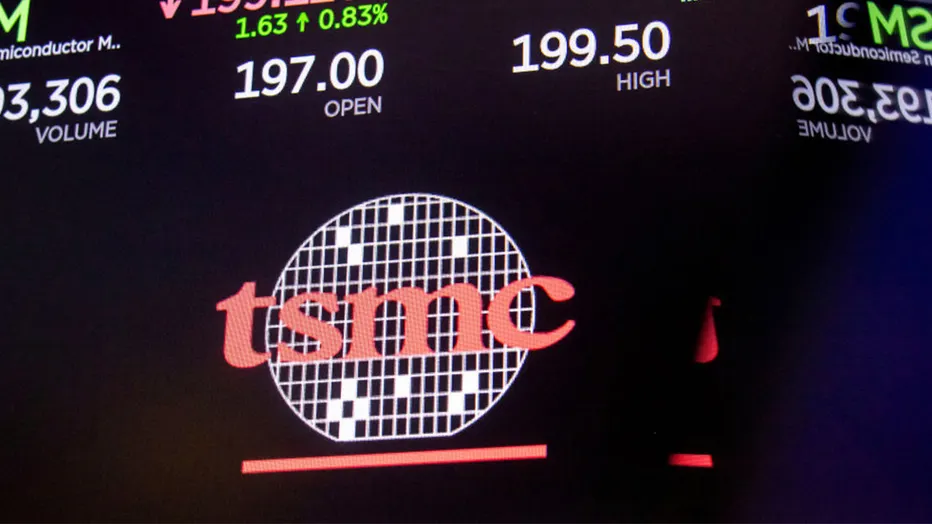Shares of Taiwan Semiconductor Manufacturing Company (NYSE: TSM) climbed Thursday after the world’s largest contract chipmaker reported record-breaking second-quarter profits, driven by booming demand for artificial intelligence (AI) chips. Despite global currency headwinds and rising concerns over U.S. tariff policy, investors appear confident that AI tailwinds will continue to drive TSMC’s growth for the foreseeable future.
TSMC reported net income of $9.4 billion for Q2 2025, a new quarterly record and up 22% from a year earlier. Revenue came in at $20.2 billion, also beating analysts’ expectations, as the company continued to benefit from its dominant position as the manufacturer of choice for advanced chips powering everything from AI data centers to smartphones and autonomous vehicles.
The earnings beat was largely attributed to explosive demand for high-performance chips used in AI training and inference—particularly from major clients like Nvidia, AMD, and Apple.
“AI is no longer just a future growth theme—it’s here, and it’s driving volume at the cutting edge,” said CEO C.C. Wei during TSMC’s earnings call. “Our 3nm and 5nm technologies are in high demand, and we expect this momentum to accelerate into 2026.”
TSMC’s advanced technology nodes (5nm and below) now make up nearly 59% of total wafer revenue, a significant increase from 48% a year ago.
Following the earnings release, TSMC’s ADRs rose 3.6% to close at $168.42, marking their highest level since February. The company also issued a bullish outlook for Q3, projecting revenue between $21.0 billion and $21.8 billion, and a gross margin between 52.5% and 54%—stronger than Wall Street estimates.
Analysts hailed the results as another signal that TSMC remains central to the global semiconductor supply chain, especially as AI workloads expand across cloud, edge, and enterprise infrastructure.
“TSMC continues to deliver operational excellence while capitalizing on the AI supercycle,” said Chris Danvers, semiconductor analyst at EverBright Research. “Even with external risks, their pricing power and technological leadership remain unmatched.”
One shadow over the otherwise sunny outlook is the growing uncertainty surrounding U.S. trade policy. Washington has been evaluating new tariffs on high-end chip imports as part of broader efforts to bolster domestic manufacturing and reduce dependency on Asia. While Taiwan has historically enjoyed favorable treatment, policy shifts could still impact TSMC’s U.S. customer base and logistics.
Still, company executives downplayed the immediate risk of trade restrictions, stating that long-term supply agreements and geographically diversified facilities—including TSMC’s new Arizona fab—provide a cushion against potential policy shocks.
“We’re monitoring the policy environment closely,” said CFO Wendell Huang, “but our global footprint positions us well for resilience and flexibility.”
TSMC acknowledged that a stronger Taiwan dollar and volatile foreign exchange rates trimmed its revenue slightly in USD terms, but not enough to derail its earnings beat. Operational efficiency and high-margin AI-related products helped protect its bottom line.
The company’s gross margin for Q2 was 53.9%, up from 51.5% last quarter, reinforcing investor confidence in its ability to maintain profitability even amid macroeconomic uncertainty.
TSMC reiterated its 2025 capital expenditure forecast of $32–$36 billion, underscoring its aggressive push to expand capacity at the leading edge. Much of this investment is tied to facilities in Taiwan, Japan, and the United States.
Notably, the company’s U.S.-based Arizona plant, expected to begin partial operations in late 2025, is seen as a strategic hedge against geopolitical risk and U.S. localization pressures.
TSMC’s stock has gained more than 47% year-to-date, outperforming the broader semiconductor index (SOX) and peer rivals such as Intel and Samsung. The strong Q2 print and guidance are expected to drive bullish revisions to analyst targets.
Currently, 29 of 33 analysts tracking the stock rate it a “Buy” or “Strong Buy,” according to Bloomberg data.
TSMC’s record-breaking second quarter confirms its unmatched position at the heart of the AI chip boom. While global economic pressures and geopolitical tensions continue to loom, the company’s cutting-edge technology, diversified client base, and bold capital investments are positioning it for long-term dominance.
As artificial intelligence continues to expand across industries and continents, TSMC stands not just as a beneficiary—but as the backbone of the next era of computing.






